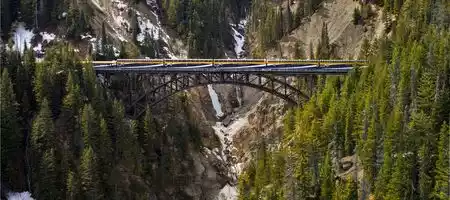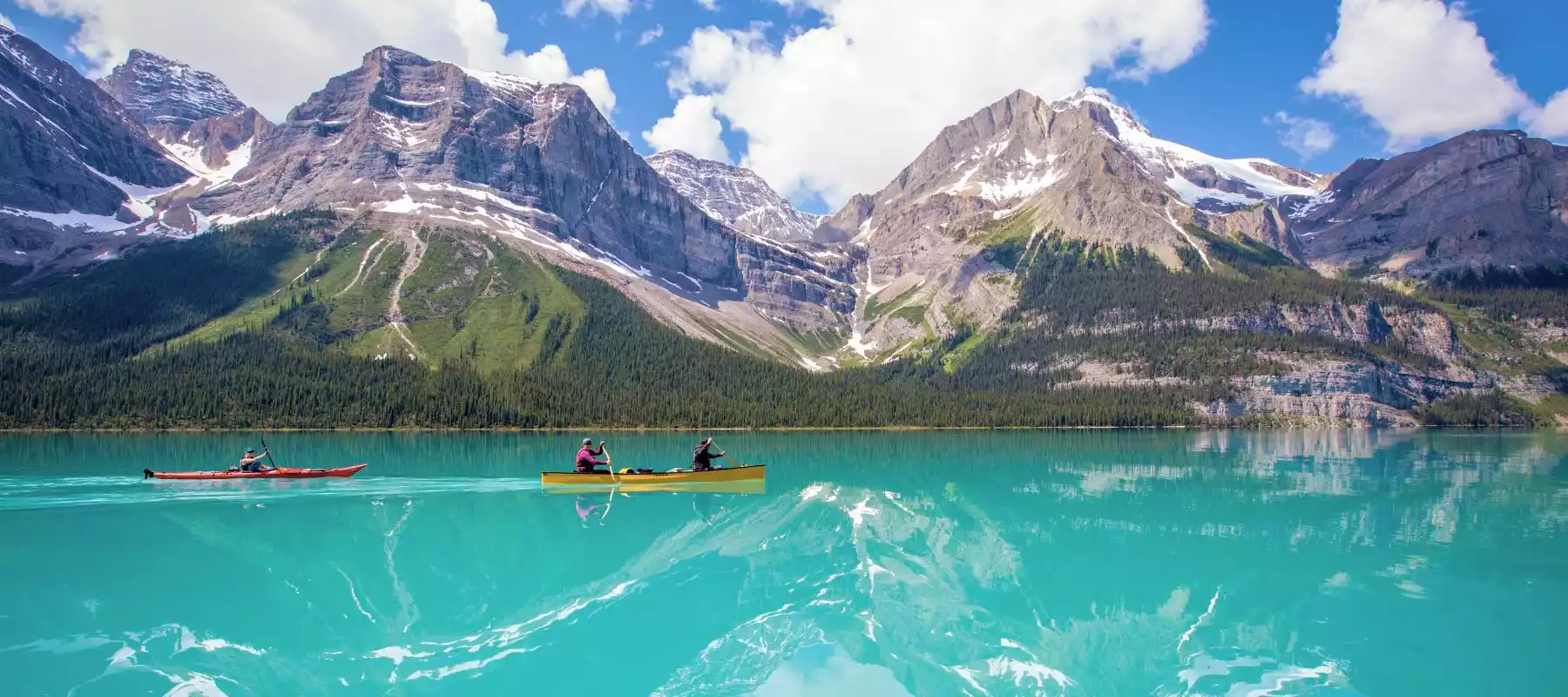

Last updated: January 7, 2026
Nature like no other, people like no other, experiences like no other. This is Canada.
Visiting Canada is about that sense of place that only Canada has. And, at Canada Rail Vacations, we want you to find those moments it lives in. If you're arriving in Canada soon, or just beginning to plan your vacation, this guide will answer all the logistical questions, so that you're ready to experience it.
We’ve put together answers to the questions that matter to you most.
Common Questions | Visiting Canada
We will cover:
- General Questions — what to expect in Canada
- Transport and Accessibility — how to get around the country
- Border and Legal — what to consider before you arrive
- How to Book — how to plan your trip
For more general questions about working with Canada Rail Vacations, please visit our dedicated page: Common Questions | Canada Rail Vacations
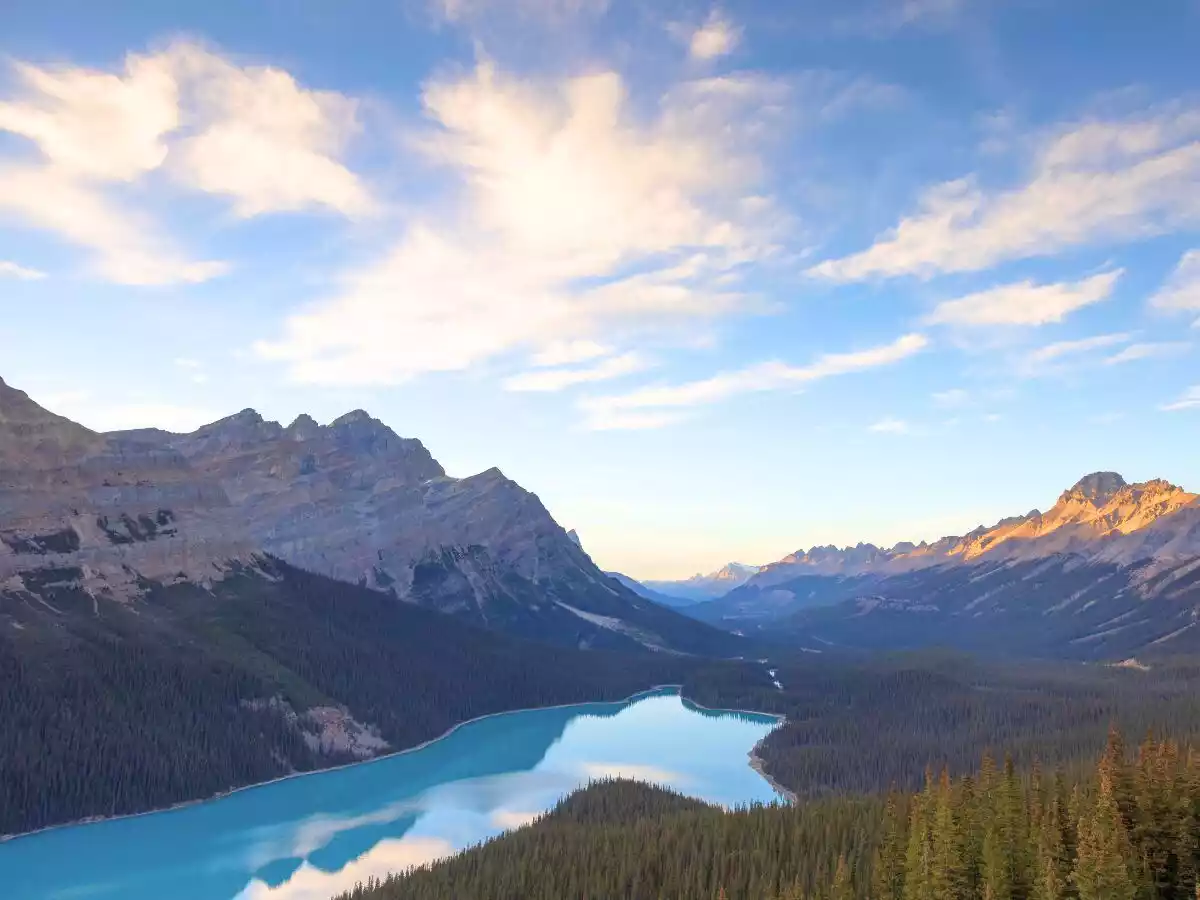 Peyto Lake in Banff National Park | Credit: Destination Canada
Peyto Lake in Banff National Park | Credit: Destination Canada
General Questions about Canada
Once you're here, what can you expect?
Does Canada accept U.S. dollars?
Some establishments in Canada may accept U.S. dollars, but relying entirely on US dollars is not recommended. The Canadian dollar is the official currency, and is the preferred method of payment. Most places favor card payments, but Amex is not always supported. As in the US, you may wish to carry cash for tips.
Since the Canadian dollar is low relative to the American dollar, the current value for US visitors using Canadian dollars is exceptional.
Are Americans welcome in Canada?
Yes, American travelers are very much welcome in Canada and Americans continue to make up one of our largest international visitor demographics.
Canada is a safe and welcoming place — and Canadians are famously friendly. Locals are always happy to welcome American visitors to our home!
How much should I tip in Canada?
Tipping is customary in Canada when dining out in restaurants, bars, and cafes, or paying for services such as taxis, hotel housekeeping, and food delivery. The standard tipping percentage is 15-20%. However, larger groups in restaurants might be subject to a flat service charge of 18-20%.
What voltage is used in Canada?
Canada uses 110V electricity and Type A and B plugs — same as in the US. No power converter is needed for US devices.
Visitors from Australia and the UK will need travel adapters or converters to charge devices.
What age is considered a child in Canada?
The age of a child varies across Canada and by circumstance.
Please ask your Travel Designer for more information on specific packages for age policies.
What age can you drink alcohol in Canada?
The drinking age in Canada varies between provinces and territories.
In Alberta, Manitoba, and Quebec, the legal drinking age is 18 years old. In all other provinces and territories, the legal drinking age is 19 years old. In British Columbia, two pieces of legal ID may be required for purchasing alcohol:
- A primary piece of official government-issued ID with name, photo, and date of birth. This might include a valid passport or driver's license
- A secondary piece of ID including a name and either a signature or photo. This might include a bank card, NEXUS card, or student ID
What age can you rent a car in Canada?
Car rental age in Canada varies between provinces and territories.
In Saskatchewan and Quebec, the legal age to rent a car is 18. In all other provinces and territories, it is 21.
What are the public holidays in Canada?
Businesses and tour operators' hours and availability are subject to change on public holidays.
- New Year’s Day — January 1
- Family Day — 2rd Monday in February
- Good Friday — according to Christian calendar each year
- Victoria Day — Monday before May 25th
- St. Jean Baptiste Day — June 24 (Quebec)
- Canada Day — July 1
- August Civic Holiday — 1st Monday in August
- Labour Day — 1st Monday in September
- National Day for Truth and Reconciliation — September 30
- Thanksgiving Day — 2nd Monday in October
- Remembrance Day — November 11
- Christmas Day — December 25
- Boxing Day — December 26
Do people speak English in Quebec and Montreal?
Yes, while French is the primary language in Quebec, most people in Montreal and tourist areas also speak English.
What is the emergency number in Canada?
911 is the emergency number for police, fire, and ambulance services.
A full list of emergency phone numbers in Canada can be found on the Government of Canada's website, courtesy of Transport Canada.
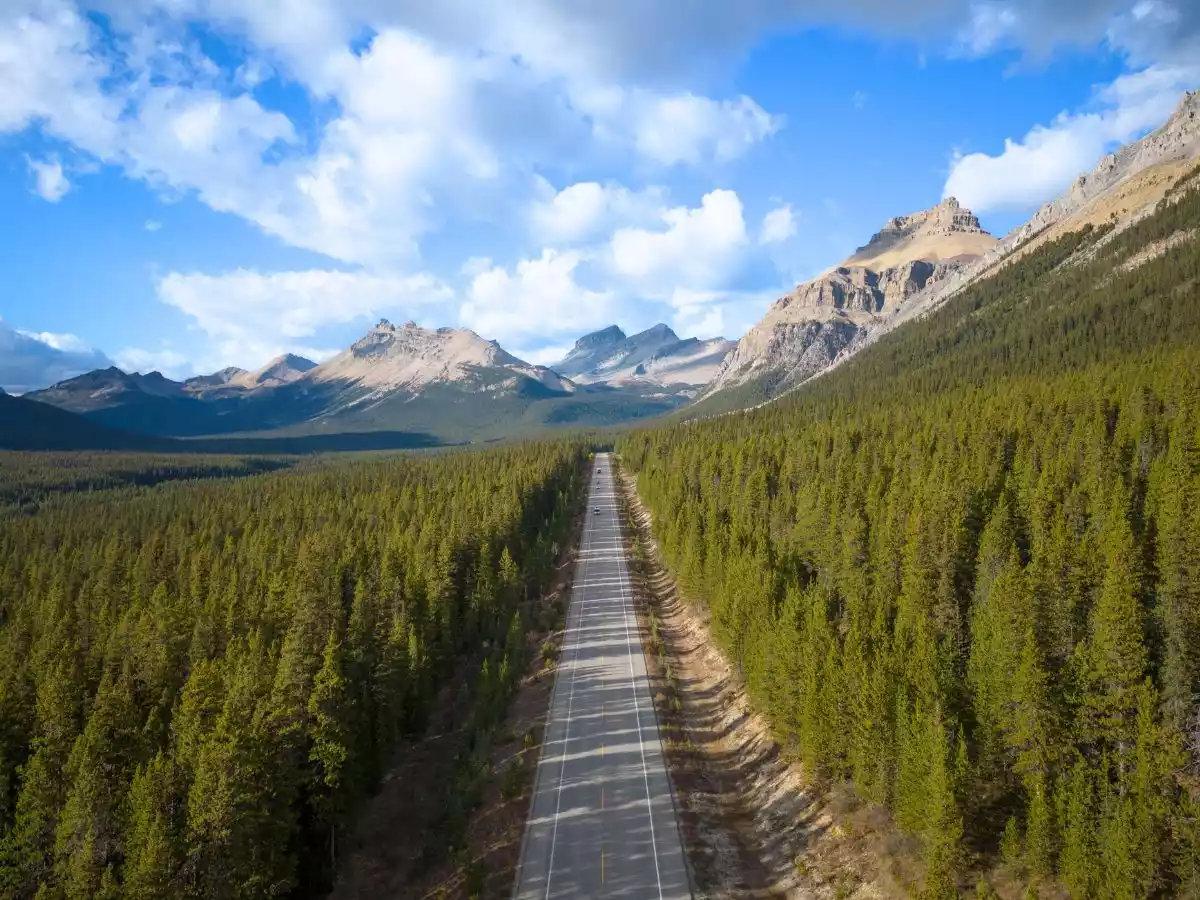 Driving through the Canadian Rockies | Credit: Destination Canada
Driving through the Canadian Rockies | Credit: Destination Canada
Transportation & Accessibility
Getting around Canada is easy, with many methods of transport running from coast to coast to coast.
How does car rental work?
Rental car pick-up and drop-off times are specified on your itinerary.
Car rental is based on 24-hour periods. For this reason, we arrange for your designated drop-off time to be during the last full day of your rental. This allows for a buffer so that you are at no risk of incurring an extra charge or late fees should you arrive slightly after the designated drop-off on your itinerary.
If you need further clarification, contact your personal Travel Designer for information on your specific booking.
Which train should I take in Canada?
The various trains in Canada offer different rail experiences, so the best train for you depends on what you hope to experience on your trip.
VIA Rail offers long-distance sleeper trains across Canada, running between Vancouver, on the West Coast, and Halifax, on the East.
Rocky Mountaineer train trips offer luxury sightseeing by rail through Western Canada, servicing Vancouver and the Canadian Rockies by day.
Your personal Travel Designer can work with you to find the train that suits you best, making your trip truly yours.
For a more detailed summary of train travel in Canada, you can visit our page: What to Expect from Canada Rail Travel
Can I take a train from Canada to Alaska?
There is no direct train from Canada to Alaska. If you are looking to travel between Canada and Alaska, your Travel Designer can help you find travel options that fit your specific itinerary.
Is Canada wheelchair accessible?
Canada is committed to accessibility, aiming to be fully accessible for persons with disabilities by 2040. The country strives to be accommodating to all residents and visitors, regardless of ability.
Currently, accessibility varies across Canada and according to individual needs. Larger cities are typically more accommodating to accessibility needs, and Parks Canada has resources available for accessible travel in National Parks.
At Canada Rail Vacations, many of our tours and transportation options are accessible. Please let us know your requirements at the time of booking so we can best accommodate you.
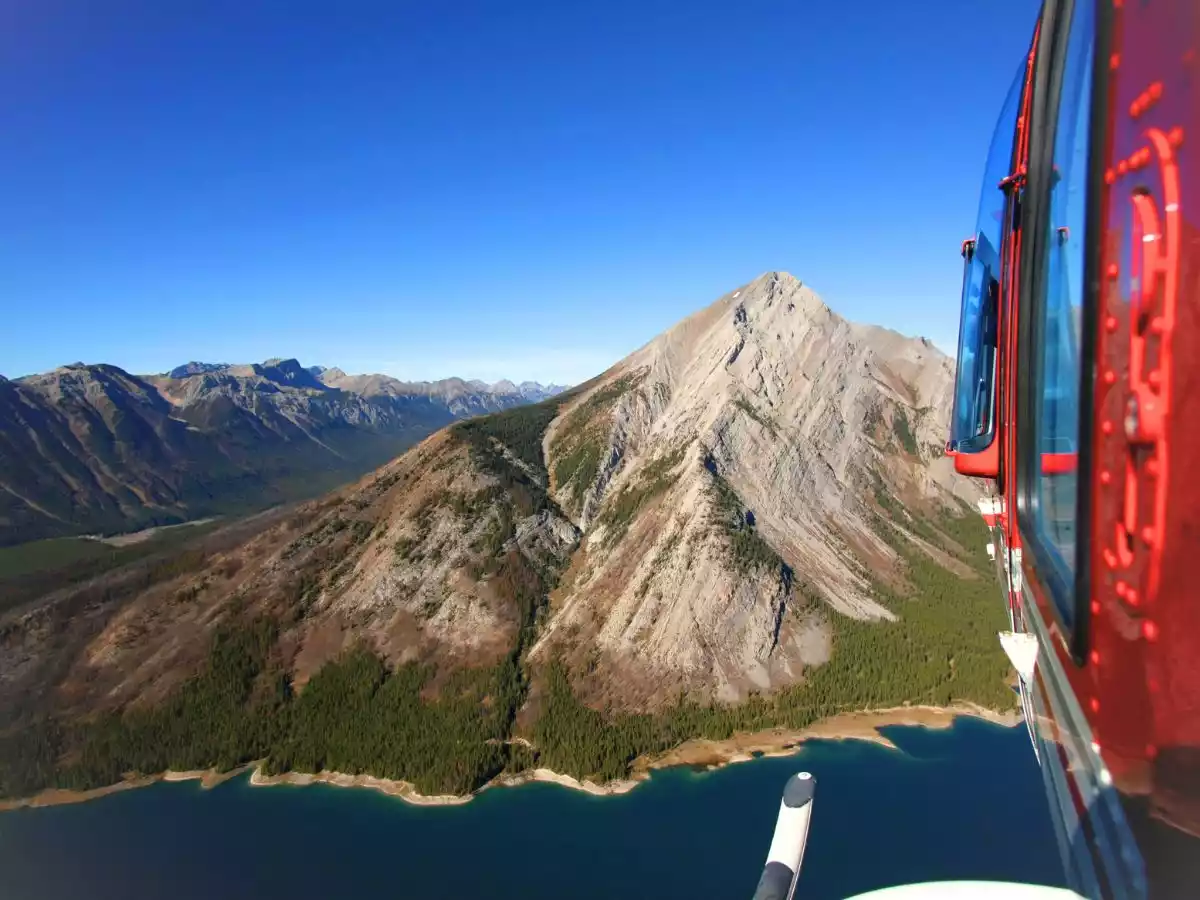 Seeing the Canadian Rockies from a helicopter tour | Credit: Alpine Helicopter Tours
Seeing the Canadian Rockies from a helicopter tour | Credit: Alpine Helicopter Tours
Border & Legal Questions
Canada Rail Vacations is not a legal expert, and the information provided should not be considered legal advice. Canada Rail Vacations will not be responsible for any issues related to visas, entry requirements, or travel documentation when entering Canada.
For the most accurate and up-to-date information, visit the Government of Canada's website. For further assistance, please consult a licensed immigration lawyer or qualified immigration consultant.
Do I need a passport to enter Canada?
Yes, a valid passport is required to enter Canada. Before entering Canada, it is always best to check the entry requirements and necessary travel documents for your respective country.
More information on entry requirements by county can be found on the Government of Canada's website. Please contact Canadian immigration for further guidance.
Do I need a passport if I’m crossing the bridge to visit Niagara Falls?
Yes, you still require a valid passport to enter Canada when crossing by bridge at Niagara Falls. The same entry requirements apply even on short visits to Canada, including land crossings, cruise docking, and crossings by bridge.
More information on entry requirements by county can be found on the Government of Canada's website. Please contact Canadian immigration for further guidance.
What if I have a criminal record?
Some individuals with criminal records are restricted from entering Canada. The border services officer at your point of entry has the ultimate authority to determine whether you may enter.
An overview of reasons you may be inadmissible to Canada can be found on the Government of Canada's website. We recommend contacting Canadian immigration further guidance.
Do I need travel insurance in Canada?
Yes, travel insurance is strongly recommended when visiting Canada. Without it, you won't be covered for medical assistance or any unforeseen circumstances that may arise while traveling.
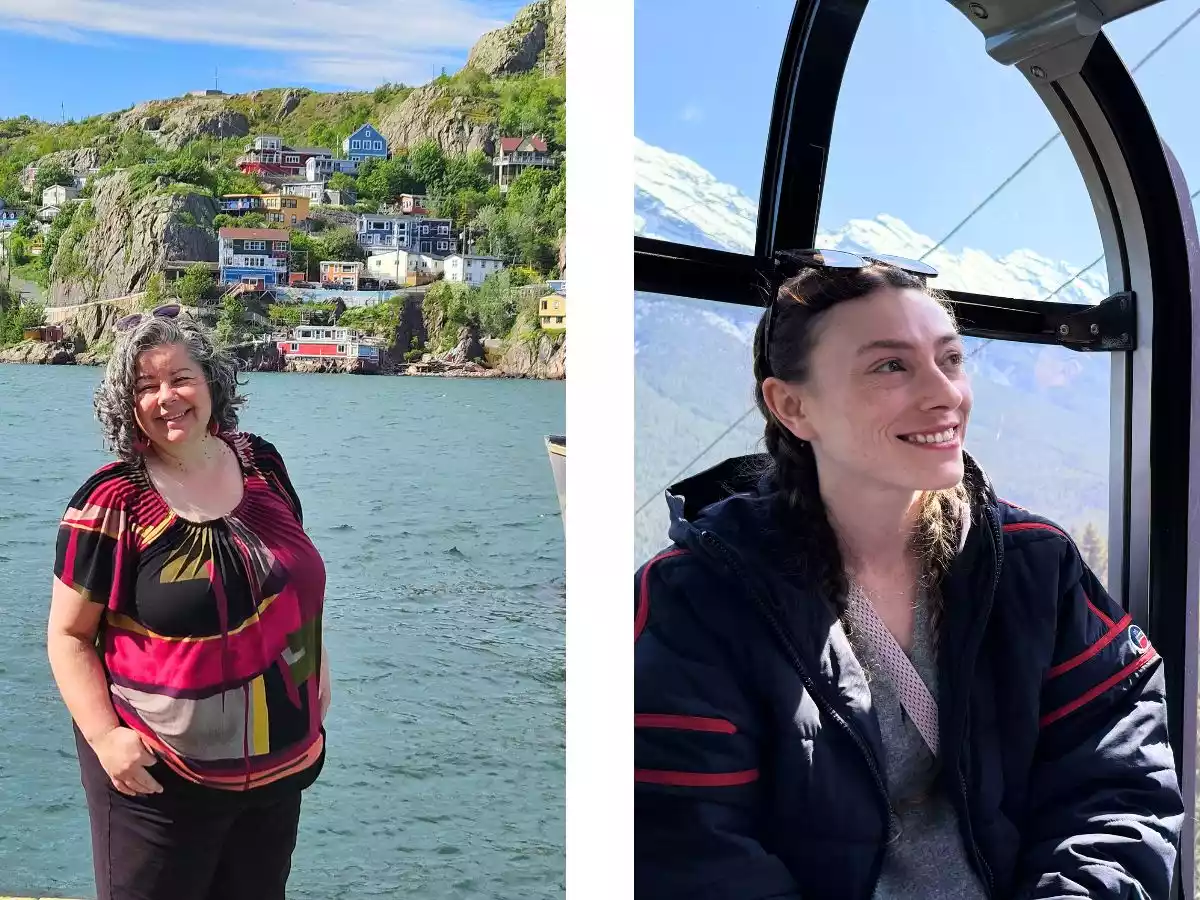 Our team exploring Canada from St. Johns, Newfoundland & Labrador, to Banff, Alberta in the Canadian Rockies
Our team exploring Canada from St. Johns, Newfoundland & Labrador, to Banff, Alberta in the Canadian Rockies
How to Book a Trip to Canada
Now that we’re acquainted, reach out to a Travel Designer and let us take care of the rest.
Working with a tour operator like Canada Rail Vacations is a perfect way to ensure your trip to Canada runs smoothly.
The planning process starts when you contact one of our team, where you can submit an enquiry or arrange a call with a Travel Designer directly. From there, they will work one-on-one with you to craft a trip unique to you, finding the things that matter to you most. With travel experts — and locals themselves — helping you plan, you can find hidden spots that few others know, and make a trip truly yours.
If you have further questions or concerns, reach out. Our Travel Designers can help with everything from last-minute queries to booking a trip. Or, subscribe to our newsletter to continue learning more about Canada and the journeys you can take there.
For questions concerning legal entry requirements and travel documents, please check the Immigration, Refugees And Citizenship Canada website, or speak to a licensed immigration lawyer or qualified immigration consultant.
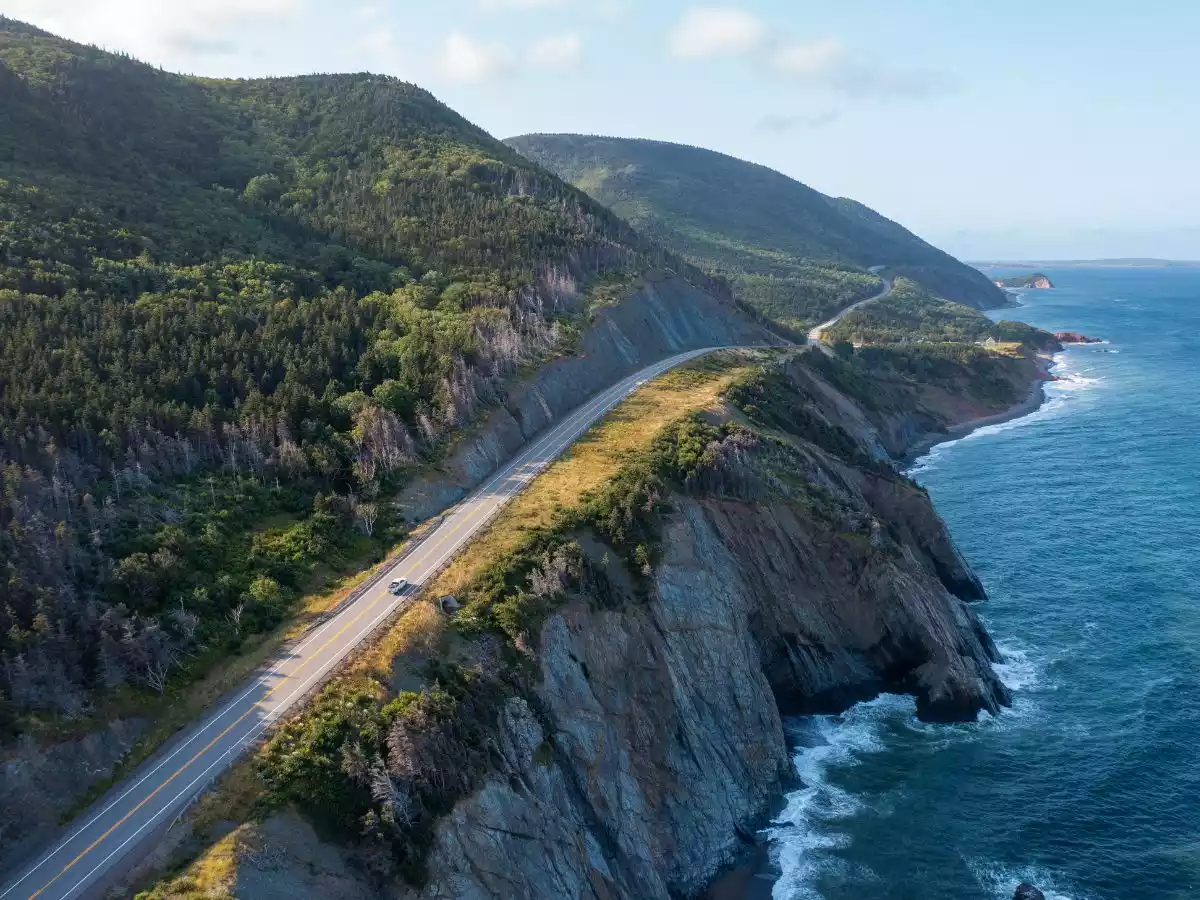 Driving the Cabot Trail around Cape Breton, Nova Scotia | Credit: Tourism Nova Scotia / Adam Hill
Driving the Cabot Trail around Cape Breton, Nova Scotia | Credit: Tourism Nova Scotia / Adam Hill
Travel tips for Canada
Beyond the must-knows, our travel experts have put together some tips and tricks to help you get the best out of your time in Canada.
Try the Local Food
Poutine, Timbits, and Ketchup chips are famously Canadian snacks to try, and this is by no means telling you to skip them.
But also try foods specific to the region you're visiting:
- Lobster rolls in Atlantic Canada
- Jiggs Dinner in Newfoundland & Labrador
- Montreal-style Bagels in Montreal
- Nanaimo bars on Vancouver Island
- Fresh seafood in Vancouver
- Alberta beef in Alberta And, after years of high levels of immigration, people heralding from many countries have brought incredible global cuisine to the country. Especially in Vancouver and Toronto, international foods are a must-try.
Pack Smart
Weather conditions vary across the country, so a 'must-pack' list varies depending on your final destination.
We typically recommend bringing layers — high-quality base layers, thick jackets, boots, scarves, mittens, and warm 'toques' (hats) in the winter; light base layers, a waterproof shell, and comfortable walking shoes in the summer. Most activities requiring specialist gear will provide it upon arrival.
Be sure to let your Travel Designer know how much luggage you plan to travel with, as most trains, small plane transfers, and remote lodges have limited weight allowances.
See What's Happening
Across the country, different festivals and events spring up throughout the year, and are a great look into the local cultures found across Canada. Some of our favorites are:
- Ottawa Summer Solstice Indigenous Festival — late June
- Calgary Stampede — early July
- Montreal Jazz Festival — late June/early July
- Vancouver Celebration of Light — early July
- Jasper Dark Sky Festival — late October/early November
Whether big, like the Calgary Stampede, or small, like local neighborhood fairs, these events add a unique touch to your time in Canada. These are a perfect way to find those little moments that make a trip truly memorable.
Table of Contents
- General Questions about Canada
- Does Canada accept U.S. dollars?
- Are Americans welcome in Canada?
- How much should I tip in Canada?
- What voltage is used in Canada?
- What age is considered a child in Canada?
- What age can you drink alcohol in Canada?
- What age can you rent a car in Canada?
- What are the public holidays in Canada?
- Do people speak English in Quebec and Montreal?
- What is the emergency number in Canada?
- Transportation & Accessibility
- How does car rental work?
- Which train should I take in Canada?
- Can I take a train from Canada to Alaska?
- Is Canada wheelchair accessible?
- Border & Legal Questions
- Do I need a passport to enter Canada?
- Do I need a passport if I’m crossing the bridge to visit Niagara Falls?
- What if I have a criminal record?
- Do I need travel insurance in Canada?
- How to Book a Trip to Canada
- Travel tips for Canada
- Try the Local Food
- Pack Smart
- See What's Happening
